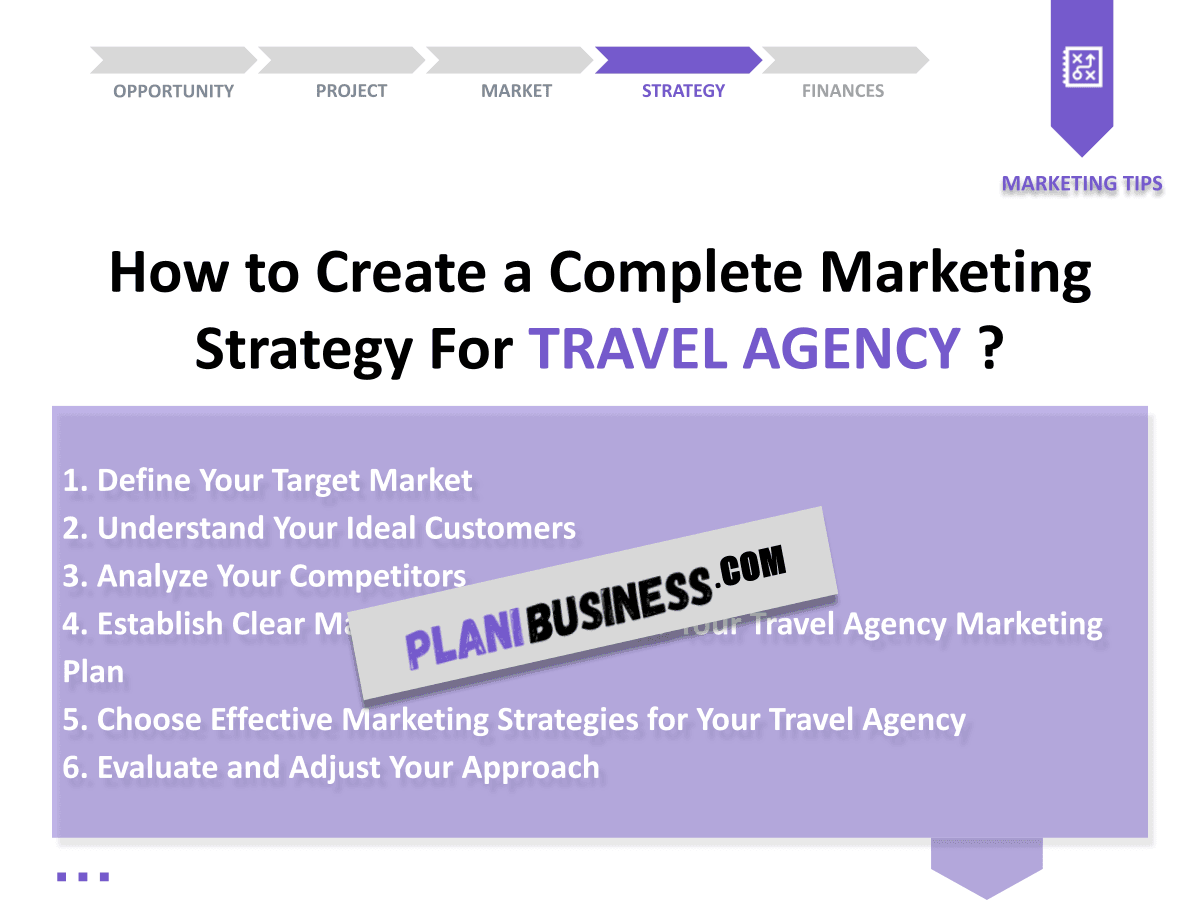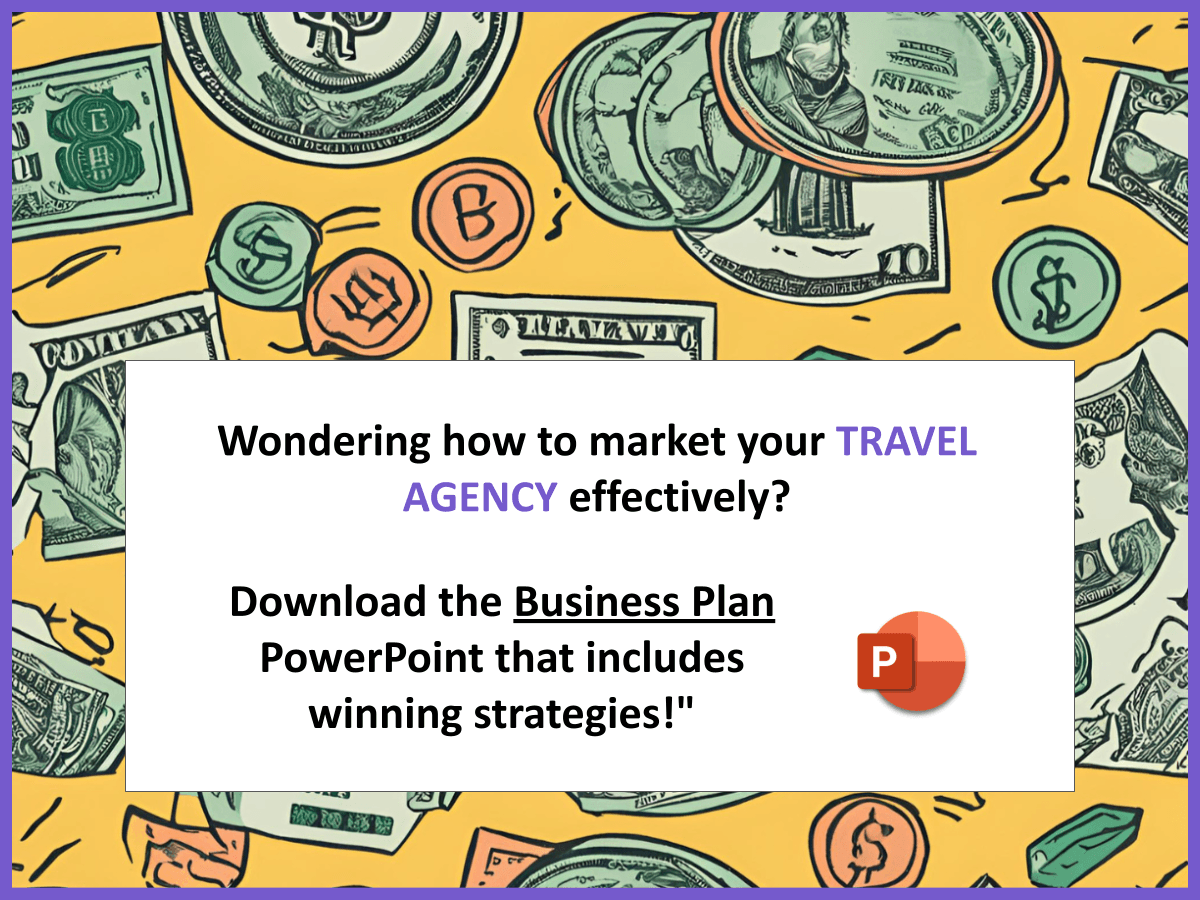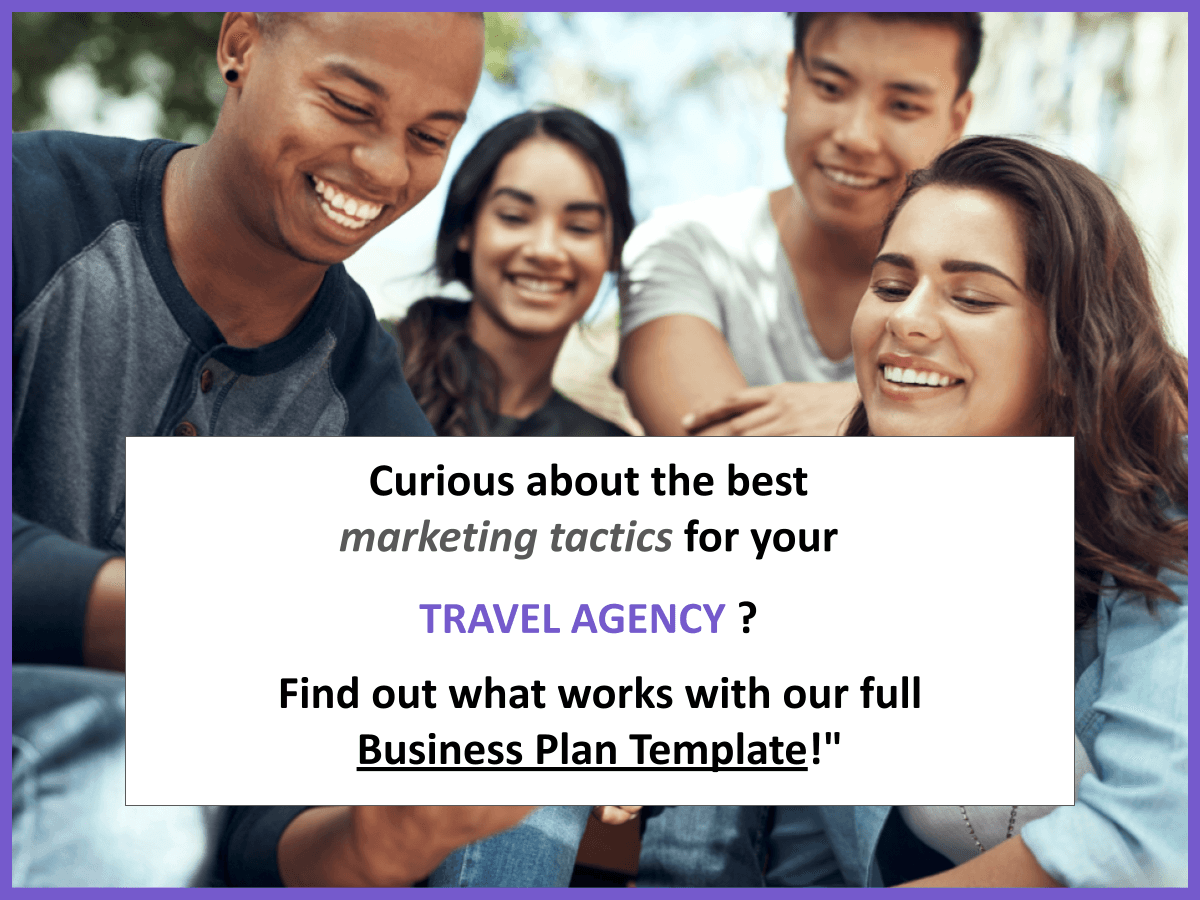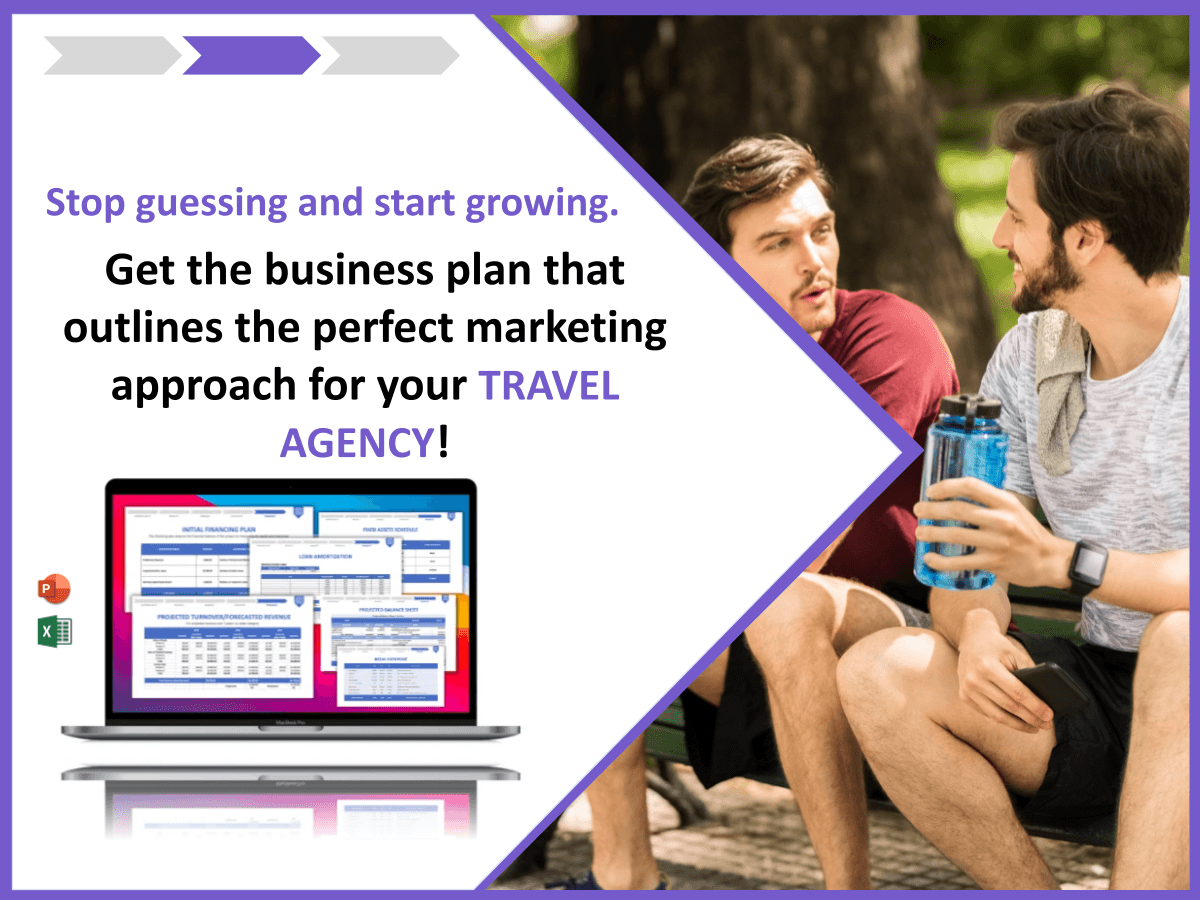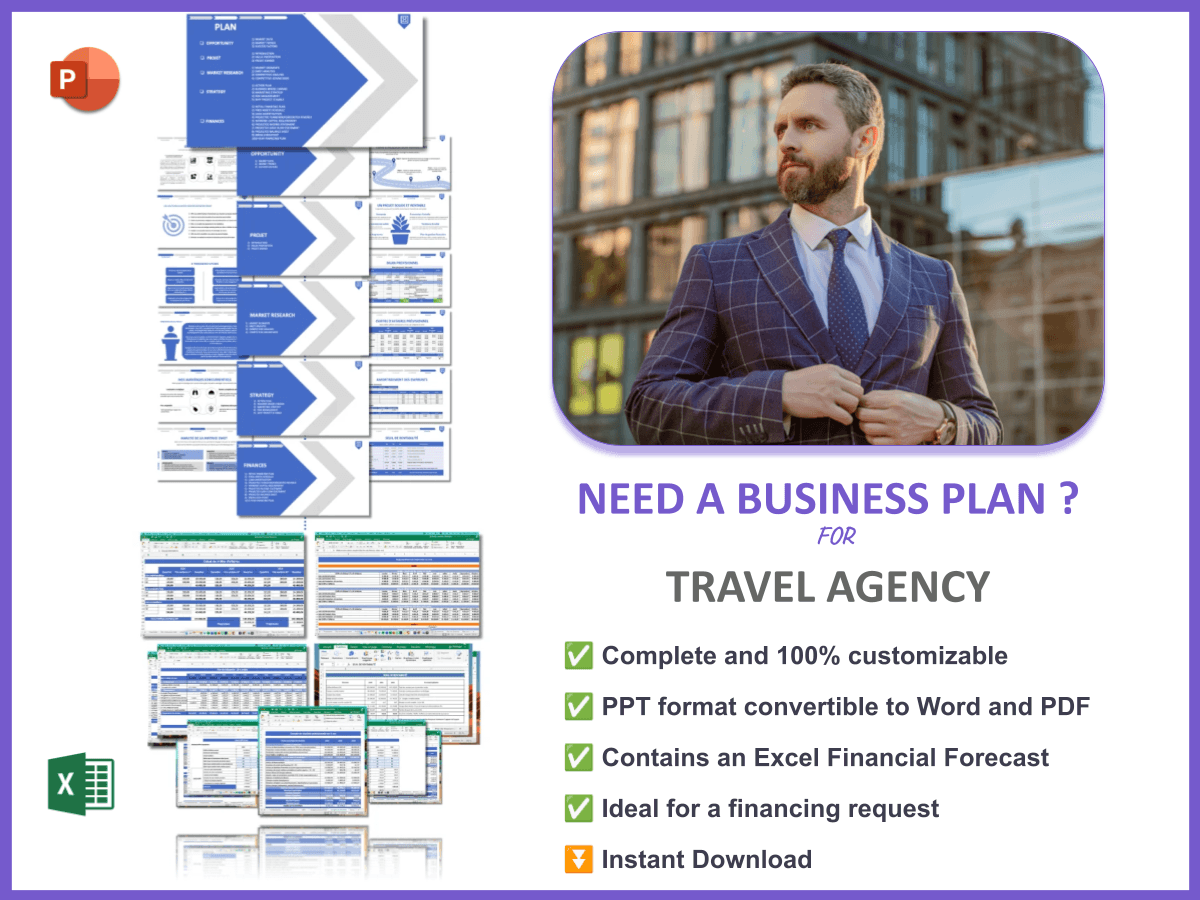Are you thinking about starting a travel agency marketing plan? You’re not alone! The travel industry is booming, and a well-structured marketing plan can be your ticket to success. In fact, according to recent studies, businesses with a formal marketing strategy see a revenue increase of up to 30%. A travel agency marketing plan is a comprehensive approach that outlines your marketing strategies, target audience, and goals.
Identifying your target market is crucial. It sets the foundation for your travel agency marketing plan and ensures that your efforts are focused on the right audience. By defining your target market, you can tailor your marketing messages and strategies to meet their specific needs. Here’s a breakdown of what to consider when defining your target market:
| Category | Description | Importance |
|---|---|---|
| Demographics | Age, gender, income level, etc. | Identifies potential customers |
| Geographics | Location of your target market | Helps tailor marketing efforts |
When defining demographics, consider factors like age, gender, and income level. For instance, if you’re targeting young professionals, your marketing messages should resonate with their lifestyle and preferences. On the geographic side, knowing where your potential customers are located helps you focus your marketing efforts effectively.
1. Define Your Target Market
To further clarify your target market, consider segmenting it into different categories. Here are some categories to think about:
- Adventure Travelers: Those who seek thrill and exploration.
- Luxury Travelers: Individuals looking for high-end experiences.
- Family Travelers: Parents planning trips for their families.
- Eco-Conscious Travelers: People focused on sustainable travel options.
By understanding these segments, you can create tailored marketing campaigns that speak directly to each group, increasing engagement and conversion rates.
Next up, let’s dive into understanding your ideal customers. This step is essential in creating a focused travel agency marketing plan that aligns with what your customers truly desire.
2. Understand Your Ideal Customers
Understanding your ideal customers helps you to create personalized marketing messages that resonate with them. It’s not just about demographics; it’s about what drives their travel decisions and preferences. Here’s how to get to know your ideal customers better:
| Aspect | Details |
|---|---|
| Interests | What do they enjoy? |
| Travel Preferences | Types of travel they prefer |
Start by conducting surveys or interviews with past clients to gather information about their interests. Do they prefer beach vacations over mountain retreats? Are they more inclined towards cultural experiences or adventure sports? Knowing these preferences allows you to create marketing content that appeals directly to them.
Additionally, consider creating customer personas. These are fictional representations of your ideal customers, built from data and insights. Here’s an example of a customer persona:
- Name: Adventure Alex
- Age: 28
- Occupation: Graphic Designer
- Travel Preferences: Hiking, camping, and outdoor activities
- Goals: Seeking unique experiences and challenges
By creating these personas, you can visualize your customers and tailor your marketing strategies accordingly. This way, your travel agency marketing plan will be much more effective in reaching and engaging your target audience.
3. Analyze Your Competitors
Analyzing competitors is a crucial step in developing a successful travel agency marketing plan. By understanding what other agencies are doing, you can identify trends, strengths, and weaknesses in the market. This information helps you find gaps that your agency can fill and informs your marketing strategies. Here’s how to conduct a competitor analysis:
| Competitor | Strengths | Weaknesses |
|---|---|---|
| Competitor A | Strong online presence, diverse offerings | Higher pricing compared to others |
| Competitor B | Excellent customer service | Limited marketing reach |
| Competitor C | Strong brand loyalty | Outdated website |
To analyze competitors effectively, consider the following steps:
- Identify key competitors: Make a list of agencies that operate in your niche.
- Evaluate their marketing strategies: Look at their websites, social media, and advertising.
- Assess their customer feedback: Read reviews to understand what customers appreciate and where they feel improvements are needed.
By gathering this data, you can position your agency to capitalize on competitors’ weaknesses while leveraging your unique strengths. This insight will be invaluable as you craft your travel agency marketing plan.
4. Establish Clear Marketing Objectives for Your Travel Agency Marketing Plan
Setting clear marketing objectives is essential for guiding your strategies and measuring success. These objectives should be specific, measurable, achievable, relevant, and time-bound (SMART). Here’s how to establish effective marketing objectives:
| Objective | Measurement |
|---|---|
| Increase website traffic | Percentage increase in visitors over 6 months |
| Boost social media engagement | Number of likes, shares, and comments per post |
| Grow email list | Number of new subscribers per month |
Here are some examples of marketing objectives you might consider:
- Increase bookings by 20%: This can be measured by tracking sales data over a specific period.
- Expand social media following by 50%: This objective focuses on growing your online presence and engaging with potential clients.
- Improve customer satisfaction ratings: Use surveys to gather feedback and aim for a specific percentage increase in positive responses.
Clear objectives guide your marketing strategies and help measure success. Remember, the more specific your objectives, the easier it will be to track progress and make necessary adjustments to your travel agency marketing plan.
5. Choose Effective Marketing Strategies for Your Travel Agency
Selecting the right marketing strategies is crucial to the success of your travel agency marketing plan. The strategies you choose should align with your target market, ideal customers, and established objectives. Here are some effective marketing strategies to consider:
| Strategy | Details |
|---|---|
| Social Media Marketing | Engage with customers on platforms like Instagram and Facebook. |
| Email Marketing | Send personalized offers and newsletters to your subscribers. |
| Content Marketing | Create informative blogs and guides related to travel. |
Here are some strategies in detail:
- Social Media Marketing: Utilize platforms like Instagram and Facebook to showcase stunning travel photos and engage with your audience. Regularly posting content can help build a community around your brand.
- Email Marketing: Build an email list and send personalized offers. This approach keeps your agency top-of-mind for potential customers, especially when they are planning their next trip.
- Content Marketing: Create valuable content that resonates with your audience. For example, blog posts about travel tips, destination highlights, or packing guides can attract visitors to your website.
Additionally, consider using paid advertising strategies such as Google Ads or Facebook Ads to reach a wider audience quickly. These strategies can help boost visibility and drive traffic to your website, making them a valuable addition to your travel agency marketing plan.
6. Evaluate and Adjust Your Approach
Regular evaluation of your marketing efforts is essential for ensuring the effectiveness of your travel agency marketing plan. By analyzing the results of your marketing activities, you can identify what’s working and what needs adjustment. Here’s how to evaluate and adjust your approach:
| Evaluation Method | Frequency |
|---|---|
| Customer Feedback | Quarterly |
| Sales Data Analysis | Monthly |
| Website Analytics | Weekly |
Here are some key evaluation methods:
- Customer Feedback: Regularly gather feedback from your customers through surveys or reviews. This information can provide valuable insights into their experiences and preferences.
- Sales Data Analysis: Track your sales data to see if you’re meeting your marketing objectives. Are you seeing an increase in bookings? If not, it may be time to adjust your strategies.
- Website Analytics: Use tools like Google Analytics to monitor website traffic, user behavior, and conversion rates. This data can help you understand which marketing channels are driving the most traffic and sales.
After evaluating your performance, make necessary adjustments to your marketing strategies. This might involve tweaking your messaging, changing your target audience, or exploring new marketing channels. Continuous improvement is key to a successful travel agency marketing plan.
7. Example N°1 of Marketing Plan for Adventure Travel Agency
Creating a marketing plan can be daunting, but having a structured example can simplify the process. Below is an example of a marketing plan tailored for an adventure travel agency:
| Steps | Actions | Details |
|---|---|---|
| 1 | Target Market | Adventurers aged 20-35 seeking thrilling experiences. |
| 2 | Ideal Customers | Eco-conscious travelers who love outdoor activities. |
| 3 | Competitors | Local adventure companies and online travel platforms. |
| 4 | Marketing Objectives | Increase bookings by 25% over the next year. |
| 5 | Marketing Strategies | Social media campaigns showcasing adventure packages. |
| 6 | Evaluation | Monthly tracking of bookings and customer feedback. |
This structured approach allows the adventure travel agency to focus on its unique selling propositions while targeting the right audience. By implementing clear actions and measurable objectives, the agency can effectively manage its marketing efforts and adapt as necessary.
8. Example N°2 of Marketing Plan for Luxury Travel Agency
Here’s another example, this time focused on a luxury travel agency. This plan emphasizes high-end clientele and exclusive experiences:
| Steps | Actions | Details |
|---|---|---|
| 1 | Target Market | Affluent families and individuals seeking luxury travel experiences. |
| 2 | Ideal Customers | Travelers looking for unique, high-end vacation packages. |
| 3 | Competitors | High-end travel agencies and luxury concierge services. |
| 4 | Marketing Objectives | Grow customer base by 15% within the next six months. |
| 5 | Marketing Strategies | Personalized email campaigns highlighting exclusive offers. |
| 6 | Evaluation | Quarterly assessments of customer satisfaction and retention rates. |
This example illustrates how a luxury travel agency can focus on exclusivity and personalization in its marketing efforts. By targeting affluent clients and establishing clear objectives, the agency can enhance its market presence and drive growth.
9. Example N°3 of Marketing Plan for Family Travel Agency
Now, let’s explore a marketing plan designed specifically for a family travel agency. This plan focuses on attracting families looking for fun and memorable experiences:
| Steps | Actions | Details |
|---|---|---|
| 1 | Target Market | Families with children aged 5-15 seeking family-friendly vacations. |
| 2 | Ideal Customers | Parents planning vacations that cater to children’s needs. |
| 3 | Competitors | Other family-focused travel agencies and online booking platforms. |
| 4 | Marketing Objectives | Increase family trip bookings by 30% over the next year. |
| 5 | Marketing Strategies | Social media contests and giveaways for family trips. |
| 6 | Evaluation | Monthly tracking of engagement rates and booking numbers. |
This marketing plan allows the family travel agency to focus on the specific needs of families, ensuring that their marketing messages resonate with potential customers. By utilizing engaging strategies such as contests, the agency can foster a sense of community and excitement around their offerings.
10. Example N°4 of Marketing Plan for Eco-Friendly Travel Agency
Next, we’ll examine a marketing plan tailored for an eco-friendly travel agency. This plan emphasizes sustainable travel and attracts environmentally conscious travelers:
| Steps | Actions | Details |
|---|---|---|
| 1 | Target Market | Environmentally conscious travelers interested in sustainable options. |
| 2 | Ideal Customers | Individuals and families seeking eco-friendly travel experiences. |
| 3 | Competitors | Other eco-friendly travel agencies and sustainable tourism platforms. |
| 4 | Marketing Objectives | Boost eco-tourism bookings by 25% in the upcoming season. |
| 5 | Marketing Strategies | Content marketing focusing on sustainability and eco-friendly travel tips. |
| 6 | Evaluation | Bi-annual reviews of bookings and customer feedback on eco-initiatives. |
This example illustrates how an eco-friendly travel agency can leverage its commitment to sustainability as a marketing tool. By focusing on eco-conscious messaging and strategies, the agency can attract like-minded customers who value responsible travel.
11. Example N°5 of Marketing Plan for Corporate Travel Agency
For corporate travel agencies, creating a marketing plan that focuses on businesses and their travel needs is essential. Here’s an example of how a corporate travel agency might structure its marketing plan:
| Steps | Actions | Details |
|---|---|---|
| 1 | Target Market | Businesses requiring travel solutions for employees. |
| 2 | Ideal Customers | Corporate managers and HR professionals. |
| 3 | Competitors | Other corporate travel agencies and in-house travel departments. |
| 4 | Marketing Objectives | Increase corporate accounts by 20% in the next fiscal year. |
| 5 | Marketing Strategies | Networking events and partnerships with local businesses. |
| 6 | Evaluation | Quarterly performance checks on client acquisition. |
This marketing plan highlights the importance of building relationships with businesses. By focusing on networking and partnerships, the corporate travel agency can expand its client base and establish itself as a trusted travel partner.
12. Example N°6 of Marketing Plan for Group Travel Agency
Group travel agencies cater to various clients, from schools to organizations planning trips. Here’s how a marketing plan for a group travel agency could look:
| Steps | Actions | Details |
|---|---|---|
| 1 | Target Market | Groups traveling for events, schools, or family reunions. |
| 2 | Ideal Customers | Event planners and group coordinators. |
| 3 | Competitors | Other group travel agencies and online booking platforms. |
| 4 | Marketing Objectives | Boost group bookings by 15% over the next year. |
| 5 | Marketing Strategies | Referral programs and targeted social media advertising. |
| 6 | Evaluation | Monthly tracking of referral sources and booking trends. |
This example emphasizes the need for group travel agencies to build strong relationships with event planners and coordinators. By implementing referral programs, the agency can incentivize existing clients to recommend their services to others.
13. Example N°7 of Marketing Plan for Niche Travel Agency
Lastly, a niche travel agency focuses on specific types of travel experiences. Here’s an example marketing plan tailored for a niche travel agency:
| Steps | Actions | Details |
|---|---|---|
| 1 | Target Market | Travelers seeking unique experiences, such as culinary or adventure trips. |
| 2 | Ideal Customers | Individuals looking for specialized travel experiences. |
| 3 | Competitors | Other niche travel agencies and specialty tour operators. |
| 4 | Marketing Objectives | Increase bookings by 10% in the upcoming travel season. |
| 5 | Marketing Strategies | SEO and content marketing focused on niche topics. |
| 6 | Evaluation | Bi-monthly reviews of website traffic and booking conversions. |
This marketing plan illustrates how a niche travel agency can leverage its specialized offerings to attract a specific audience. By focusing on SEO and content marketing, the agency can enhance its visibility and appeal to travelers looking for unique experiences.
Conclusion
In conclusion, developing a solid travel agency marketing plan is essential for attracting clients and driving business growth. By understanding your target market, analyzing competitors, setting clear objectives, and choosing effective strategies, you can create a marketing plan that resonates with your audience. Regular evaluation and adjustments will ensure your plan remains relevant and effective in a constantly changing industry.
If you’re looking for a comprehensive approach to starting your travel agency, consider checking out this business plan template for Travel Agency. Additionally, for more insights, you might find our articles on How to Develop a Travel Agency? and How to Create a SWOT Analysis for Travel Agency helpful in guiding your journey.
FAQ
- What is a travel agency marketing plan?
A travel agency marketing plan is a strategic document that outlines how a travel agency will promote its services to attract and retain customers. - Why is a marketing plan important for a travel agency?
A marketing plan is crucial because it helps a travel agency define its target audience, set measurable goals, and develop effective strategies to reach potential clients. - How do I identify my target market?
To identify your target market, analyze demographics, interests, and travel preferences of potential customers. Conduct surveys or use existing data to understand who your ideal clients are. - What marketing strategies work best for travel agencies?
Effective marketing strategies for travel agencies include social media marketing, email campaigns, content marketing, and paid advertising. - How often should I evaluate my marketing plan?
It’s advisable to evaluate your travel agency marketing plan regularly, ideally monthly or quarterly, to assess performance and make necessary adjustments. - What are common challenges in travel agency marketing?
Common challenges include competition, changing consumer preferences, and economic fluctuations that impact travel behavior. - How can social media benefit my travel agency?
Social media platforms can enhance visibility, engage with customers, and showcase travel packages, helping to attract more clients. - What role does customer feedback play in marketing?
Customer feedback is essential for understanding client satisfaction, improving services, and refining marketing strategies based on real experiences. - How do I measure the success of my marketing plan?
You can measure success by tracking key performance indicators (KPIs) such as website traffic, conversion rates, and customer engagement metrics. - What is the best way to create a brand identity for my travel agency?
Develop a unique brand identity by defining your agency’s mission, values, and target audience, and ensure that your branding is consistent across all platforms.

